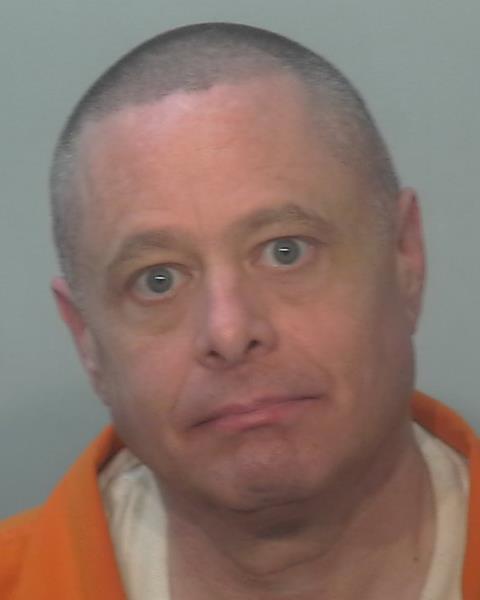Delphi murders suspect Richard Allen has been found guilty of murdering two teenage best friends who’d gone for a walk on a local trail in 2017, in a case that rocked the small Indiana community.
A jury of five men and seven women deliberated for about 18 hours over four days before reaching the decision on Monday. Allen’s wife was sobbing in the Carroll County courtroom as the 52-year-old was found guilty on all four counts.
The verdict comes more than seven years after the brutal slayings in Delphi, Indiana, and following 17 days of testimony, as crowds lined the sidewalk outside the courthouse of the smalll Indiana community.
Allen, a Delphi local, had pleaded not guilty to the four counts of murder and kidnapping in the deaths of Abigail “Abby” Williams, 13, and Liberty “Libby” German, 14, who disappeared on February 13, 2017, after going for a walk on Monon High Bridge Trail near Delphi.
Their bodies were discovered near the trail the following day. Their throats had been slashed and they were covered with sticks and arranged into pagan symbols, resembling a ritualistic sacrifice. It would take five years for Allen to be arrested in October 2022.

Carroll County Prosecutor Nicholas McLeland insisted throughout the trial that Allen was the “Bridge Guy” seen in a grainy video that Libby recorded on her cell phone shortly before she died.
In the video, a man in jeans and a hat is seen walking along the old wood railroad, surrounded by trees. Along with muffled noises, a man’s voice saying the words “down the hill” can be heard.
McLeland said a state trooper who had listened to more than 700 phone calls placed by Allen had identified Allen’s voice on the video telling the teens to go “down the hill.”
But Allen’s defense attorneys said during closing arguments that no one identified Allen as “Bridge Guy,” adding that there was no DNA or digital evidence linking Allen to the crime scene and that there was no link between him and the girls.
The Delphi murders case has been shrouded in mystery and plagued by delays, shifting narratives, controversies, chaotic developments and evidence leaks ever since that fateful day in February 2017.
Prosecutors focused on Allen’s confessions during the trial, with McLeland telling the jurors that Allen had confessed repeatedly to the murders in recorded phone calls from jail. The confessions were played for the jury, including one in which Allen could be heard telling his wife: “I did it. I killed Abby and Libby.”
McLeland also argued that some of Allen’s incriminating statements contained information that only the killer could have known.
But one of Allen’s defense attorneys, Bradley Rozzi, argued that his client’s confessions were unreliable because he suffered a severe mental health crisis while under the stress of being locked up in isolation.
A psychiatrist who testified at the trial supported the argument, testifying that months in solitary confinement could cause a person to become delirious and psychotic.
During closing argments on Thursday, the defense slammed the prosecution’s timeline and told jurors that Allen was not the killer, as he highlighted four points which included the state’s “broken” murder timeline, the “bungled” ballistics, “false” confessions and digital forensics.
Before the trial began, the defense had sought to argue that the girls were killed in a ritual sacrifice by members of a white nationalist group known as the Odinists who follow a pagan Norse religion, but the judge ruled against that, saying the defense “failed to produce admissible evidence” of such a connection.
When Allen’s trial finally began on October 18 at the Carroll County Courthouse in Delphi, two years after his arrest, Superior Court Judge Fran Gull had ruled that no photography, video or audio recording devices will be allowed in the Carroll Circuit Courtroom during the trial.
Allen’s sentencing is expected to be held on December 20. He faces up to 130 years in prison.

